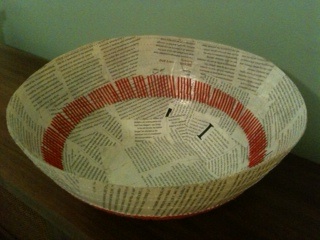Here is my own personal list:
List 1 - The Seven Wonders of the Ancient World
 Of these, only one exists today, but it is an important one: the Great Pyramid of Giza. I can't quite forgive myself for missing out on that one, and need a plan to remedy this.
Of these, only one exists today, but it is an important one: the Great Pyramid of Giza. I can't quite forgive myself for missing out on that one, and need a plan to remedy this. I do give myself some credit for visiting Olympia last summer where I read about the legendary statue of Zeus which was once there - and a Wonder of the Ancient World.
List 2 - The Seven Wonders of the Medieval Mind
I did much better with this one, having been to the Colosseum, Hagia Sophia in Istanbul and the Leaning Tower of Pisa. However, there are four locations I have never visited.List 3 - The Seven Natural Wonders of the World
For this category, I can only claim two wonders: the Grand Canyon and the Northern Lights. I've actually been to the Grand Canyon more than once and seen the Northern Lights twice, so do those count as four?List 4 - The Seven Underwater Wonders of the World
 I did even worse here since the only location on the list I've been to is the Galapagos Islands.
I did even worse here since the only location on the list I've been to is the Galapagos Islands. Since I snorkeled for the first time in the Galapagos only five years ago, I guess this isn't so bad.
List 5 - The Seven Wonders of the Modern World
I was surprised that out of this list, I've only been to the Empire State Building and the Golden Gate Bridge. Five more to go.Lists 6, 7, 8 and 9 detail what they call the "Forgotten" Wonders
I was unable to determine just what constituted a wonder being forgotten, so I can only surmise that there wasn't room for these places on the "A" lists. As they include some of what I consider extremely important buildings and beautiful natural locations, it is hard for me to see how they could have been outvoted. However, since there are also many stunning places that weren't mentioned at all, I have to wonder who could have possibly forgotten those as well. Since the 9th list comprised 13 forlorn wonders, what would a few more hurt?


From these four lists, I have collected Big Ben, the Eiffel Tower, Mount Rushmore, the Parthenon, the Statue of Liberty and Gateway Arch in St. Louis (listed with the Eiffel Tower and the Parthenon? Really?). How strange that the "forgotten wonders" are the ones I've been to the most.
As for one more from this list, last summer when I visited Tanzania, I was very close to Mount Kilimanjaro. However, since it was night when I arrived, and the mountain was shrouded in mist during the day, I never actually saw it. That will be my excuse to go back.
So, of the 63 wonders listed, I've only seen 14. Obviously I've got some traveling to do.
For the full lists, visit Wonder Club.









































